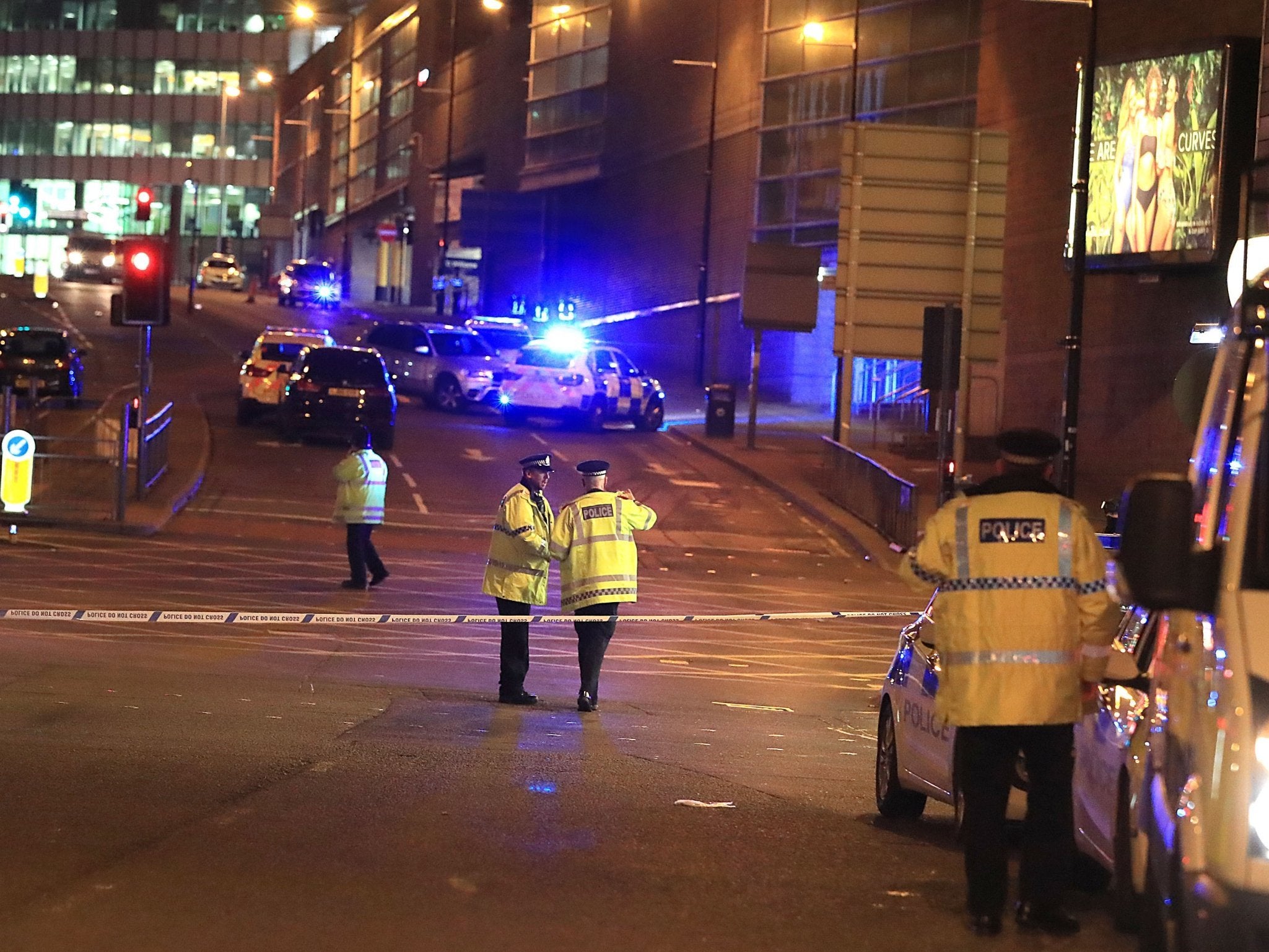Manchester bombing: Coroner urged not to let security services 'cover up responsibility' by withholding inquest evidence
'It's not national security that's the concern, but national humiliation,' lawyer tells pre-inquest hearing

Your support helps us to tell the story
From reproductive rights to climate change to Big Tech, The Independent is on the ground when the story is developing. Whether it's investigating the financials of Elon Musk's pro-Trump PAC or producing our latest documentary, 'The A Word', which shines a light on the American women fighting for reproductive rights, we know how important it is to parse out the facts from the messaging.
At such a critical moment in US history, we need reporters on the ground. Your donation allows us to keep sending journalists to speak to both sides of the story.
The Independent is trusted by Americans across the entire political spectrum. And unlike many other quality news outlets, we choose not to lock Americans out of our reporting and analysis with paywalls. We believe quality journalism should be available to everyone, paid for by those who can afford it.
Your support makes all the difference.Relatives of the Manchester attack victims have been assured that the security services will not be allowed to “cover up responsibility” for the bombing.
A coroner is considering “public interest immunity” applications from police and MI5. These would prevent some evidence from being made public on national security grounds.
Lawyers representing families of the 22 people killed in the 2017 bombing at an Ariana Grande concert said the organisations applying were the same as those “in the firing line” for criticism during the upcoming inquests.
John Cooper QC, representing several of the families, told the coroner: “When you consider material that will be placed before you, we submit you should bear in mind the very people seeking to restrict material being placed in the public domain, the people making the application are the very people who could potentially be severely criticised, and the ramifications of that are significant.
"There are many in this court that have been in cases where national security has been cited, particularly in military inquests, when perhaps it's not national security that's the concern, but national humiliation, in the sense of matters being placed before the court that's embarrassing to services."
Pete Weatherby QC, also representing families, said his clients feared "that the public interest immunity applications are being cast too wide. We urge you to take a very anxious approach to the scrutiny of these matters.“
A previous report found that MI5 received two separate pieces of intelligence in the months before the attack “whose significance was not fully appreciated at the time”.
David Anderson QC wrote that it "was assessed at the time to relate not to terrorism but to possible non-nefarious activity or to criminality" on the part of 22-year-old Salman Abedi, who also died when he detonated a device as concert goers left the arena.
"In retrospect, the intelligence can be seen to have been highly relevant to the planned attack," he added,
No further detail was given in the 2017 report, which was an assessment of internal reviews carried out by agencies and the police.
MI5 claimed that opening a new investigation would not have prevented the attack, but Mr Anderson said it would have “plainly been preferable” to make Abedi an active subject of interest.
The 22-year-old had already been put under investigation twice, including over indirect contact with an Isis figure in Libya.
Mr Anderson’s report found that MI5 also missed the opportunity to use a notice that would have triggered an alert when Abedi re-entered the UK days before the bombing, allowing him to be searched and questioned at the airport.
The inquests will examine the build-up and the attack itself, security at the arena, the emergency response, the victims and their causes of death.
They will also look at whether the attack could have been prevented and the role of the police and security services.
The coroner assured families that he would investigate authorities thoroughly during Friday’s hearing at Manchester Town Hall,.
Sir John Saunders, a retired High Court judge, said: ”This will be a vigorous process. Public interest immunity will not be used as a device for covering up responsibility and I will do my very best that does not happen. A rigorous investigation will take place.“
Part of the hearing was held in private for the coroner to consider applications from the Home Office and Greater Manchester Police.
Sir James Eadie QC, representing the Home Office, said that while open justice was a "thoroughly important matter" it was more important to withhold sensitive information from police and the security services that could be useful to terrorists.
"National security, if you will, is at the very top of the tree in terms of protection of the public and, therefore, public interest,” he told the hearing.
Alan Payne QC, representing Greater Manchester Police, said the evidence in the application had been analysed by the force’s counterterrorism experts, who concluded it could not be made public without jeopardising national security.
The coroner, counsel to the inquest and lawyers for the Home Office and police later went into a private session to discuss the detail of the applications.
Sir John's decision will be made public at a later date.
Additional reporting by Press Association
Join our commenting forum
Join thought-provoking conversations, follow other Independent readers and see their replies
Comments